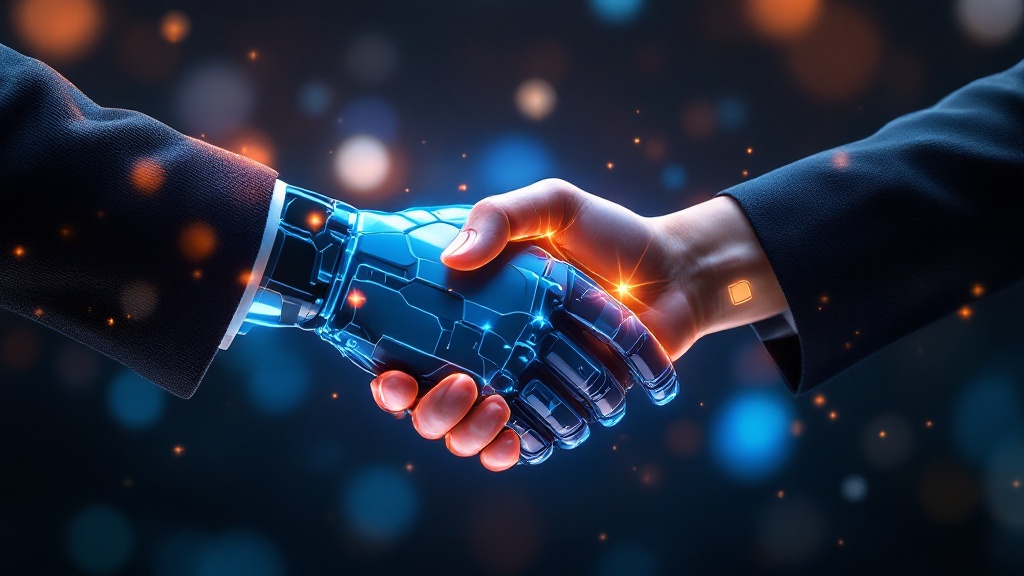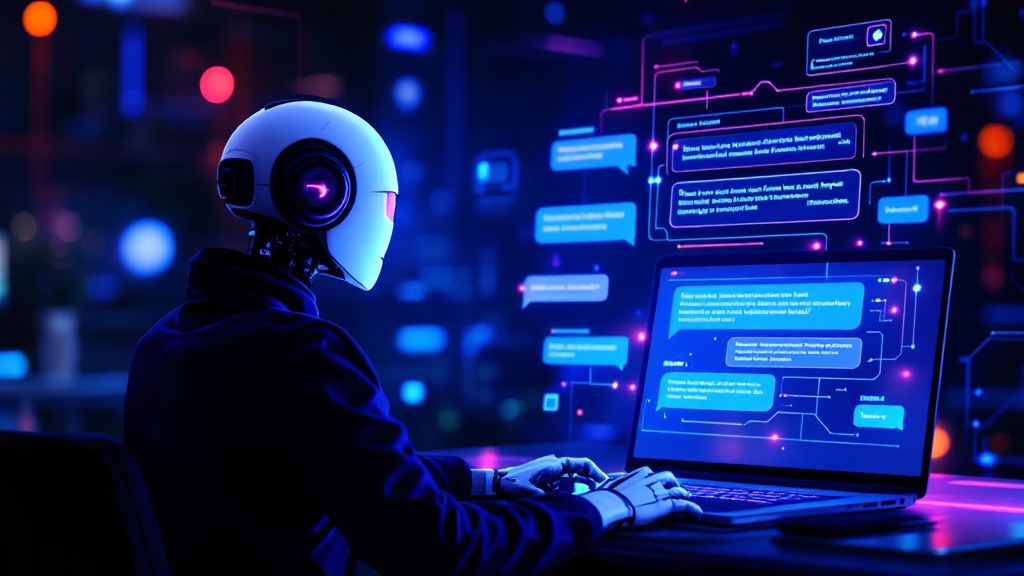Introduction
Customer support has undergone a significant transformation in recent years, driven by advancements in Artificial Intelligence (AI). One of the most impactful innovations in this space is AI-powered chatbots. These intelligent virtual assistants are revolutionizing the way businesses interact with their customers, providing instant responses, resolving issues efficiently, and enhancing overall user experience. By leveraging natural language processing (NLP) and machine learning, AI chatbots can understand and respond to queries in a conversational manner, making customer support more accessible, scalable, and cost-effective.

The Rise of AI in Customer Support
The adoption of AI in customer support has grown exponentially as businesses seek to enhance customer experience while reducing operational costs. Traditional customer support methods, such as phone calls and email-based support, often lead to long wait times and inconsistent service quality. AI-powered chatbots have emerged as a solution to these challenges by providing real-time assistance and automating repetitive tasks.
Companies across various industries, including e-commerce, banking, healthcare, and telecommunications, are integrating chatbots into their customer support systems. These AI-driven solutions offer 24/7 assistance, handle high volumes of queries, and continuously improve through machine learning algorithms. As a result, businesses can provide faster and more efficient customer support while maintaining high levels of customer satisfaction.

Key Benefits of AI-Powered Chatbots
AI-powered chatbots offer numerous benefits that enhance customer support operations. Some of the most significant advantages include:
1. Instant and 24/7 Support
AI chatbots offer 24/7 support, ensuring instant responses anytime. Unlike human agents with shift limitations, they cater to global customers across different time zones without delays.
2. Improved Response Time and Efficiency
High inquiry volumes often lead to long wait times. AI chatbots reduce this by handling multiple queries at once, automating common issues, and allowing human agents to focus on complex cases.
3. Cost Reduction and Scalability
AI chatbots reduce costs by automating interactions, minimizing the need for large support teams. They scale efficiently, meeting growing demands while offering businesses a budget-friendly customer support solution.
4. Personalized Customer Interactions
AI chatbots analyze customer data, past interactions, and purchase history to deliver personalized responses, recommend products, assist with troubleshooting, and provide tailored solutions, enhancing customer satisfaction.
5. Multichannel Support Integration
AI-powered chatbots integrate across websites, apps, messaging platforms, and social media, ensuring seamless support on preferred channels for a consistent and convenient customer experience.

How AI Chatbots Enhance Customer Experience
AI-powered chatbots go beyond simple question-answering by incorporating sophisticated algorithms that improve customer interactions. They enhance customer experience in several ways:
1. Understanding Natural Language
Natural Language Processing (NLP) helps AI chatbots understand and respond to customer queries naturally, recognizing intent even with varied phrasing for accurate, dynamic interactions without rigid scripting.
2. Context-Aware Conversations
AI-driven chatbots remember past interactions, maintaining context throughout conversations. This prevents repetitive questions, ensuring smoother interactions and leading to higher customer satisfaction.
3. Proactive Support and Assistance
AI chatbots predict potential issues and offer solutions before escalation. For example, an e-commerce chatbot can notify customers of order delays and suggest alternatives, improving transparency and trust.
4. Seamless Handover to Human Agents
AI chatbots manage most inquiries but escalate complex issues to human agents, ensuring seamless support and smooth transitions when needed.

Challenges and Limitations of AI Chatbots
Despite their many advantages, AI-powered chatbots face several challenges and limitations:
1. Understanding Complex Queries
While AI chatbots have improved significantly, they may still struggle with highly complex or ambiguous queries that require deep contextual understanding. In such cases, human intervention remains necessary.
2. Handling Emotional Interactions
Customer support often involves dealing with frustrated or emotional customers. While AI chatbots can recognize sentiment through sentiment analysis, they lack the emotional intelligence and empathy of human agents, which can impact user experience in sensitive situations.
3. Language and Cultural Barriers
Although AI chatbots support multiple languages, they may not always understand regional dialects, slang, or cultural nuances accurately. This can lead to misinterpretations and ineffective communication.
4. Data Privacy and Security Concerns
AI chatbots collect and process customer data to improve responses. However, businesses must ensure that chatbot interactions comply with data privacy regulations and implement robust security measures to protect customer information from breaches and misuse.

The Future of AI-Powered Chatbots in Customer Support
The future of AI chatbots in customer support looks promising, with ongoing advancements in AI and machine learning. Future AI chatbots will become more sophisticated, capable of handling complex conversations with enhanced accuracy. Improved NLP models will allow chatbots to understand human language more intuitively, making interactions feel more natural and seamless. With the rise of voice-based technology, AI chatbots will integrate with virtual assistants like Alexa, Siri, and Google Assistant to provide voice-enabled customer support, enabling businesses to offer a more interactive and hands-free support experience.
As AI chatbots become more data-driven, they will offer hyper-personalized experiences by analyzing user preferences and past interactions. This will allow businesses to anticipate customer needs and provide tailored solutions proactively. Rather than replacing human agents, AI chatbots will work alongside them, augmenting their capabilities. Businesses will leverage AI to handle routine inquiries while human agents focus on complex problem-solving, leading to more efficient support systems.

Conclusion
AI-powered chatbots are revolutionizing customer support by providing instant, scalable, and cost-effective solutions for businesses. Their ability to handle large volumes of queries, personalize interactions, and integrate across multiple channels makes them a valuable asset in modern customer service strategies.
While challenges such as understanding complex queries and emotional intelligence remain, continued advancements in AI and machine learning will further enhance chatbot capabilities. As businesses embrace AI-driven solutions, chatbots will play an increasingly vital role in delivering seamless, efficient, and customer-centric support experiences. Investing in AI-powered chatbots is no longer an option but a necessity for companies looking to stay ahead in the competitive landscape of customer service. You can also checkout our blogs about Large Language Models, Retrieval-Augmented Generation and Generative Pre-Trained Transformer.

